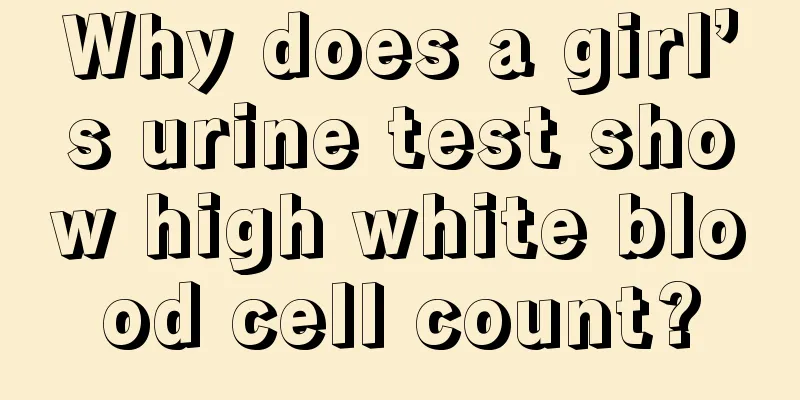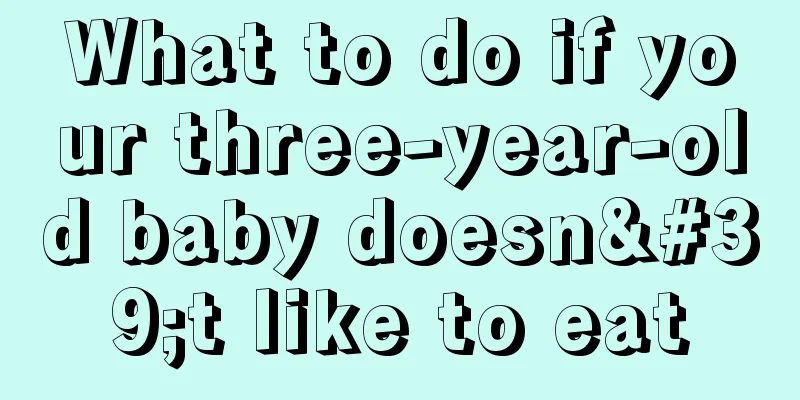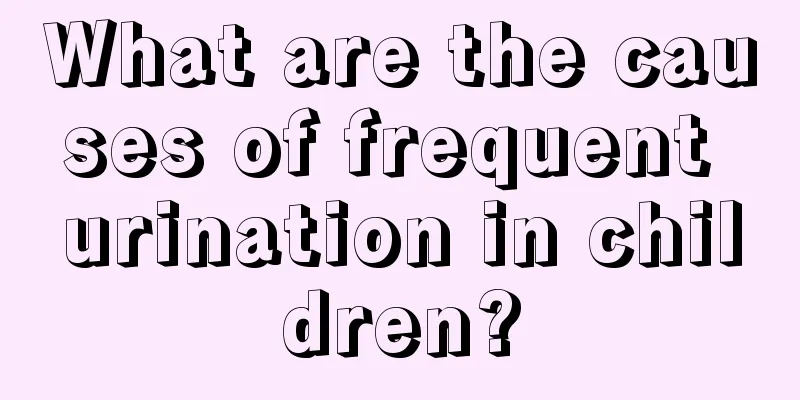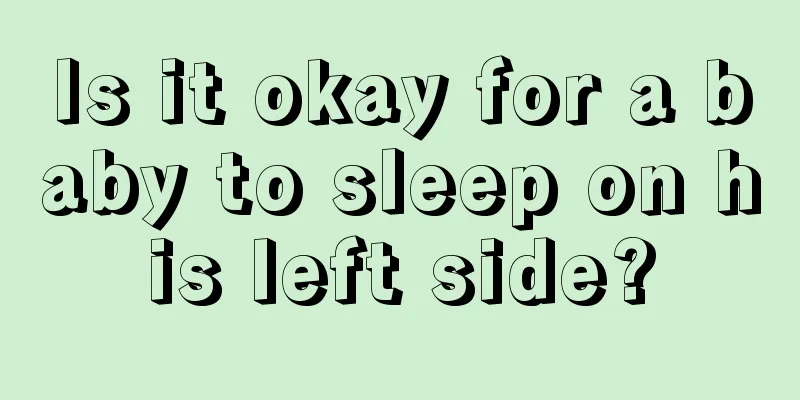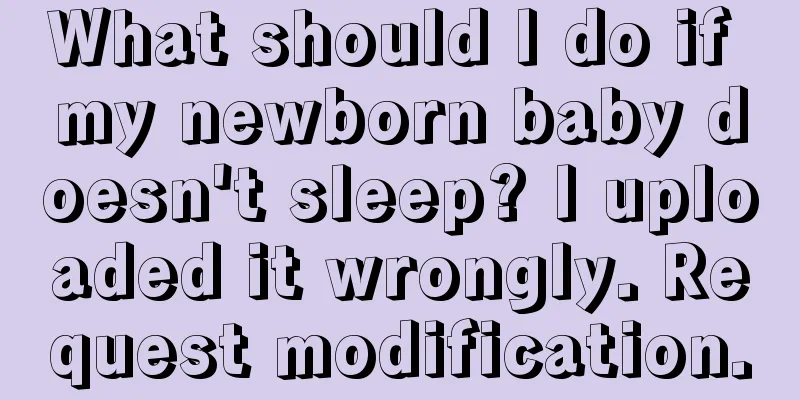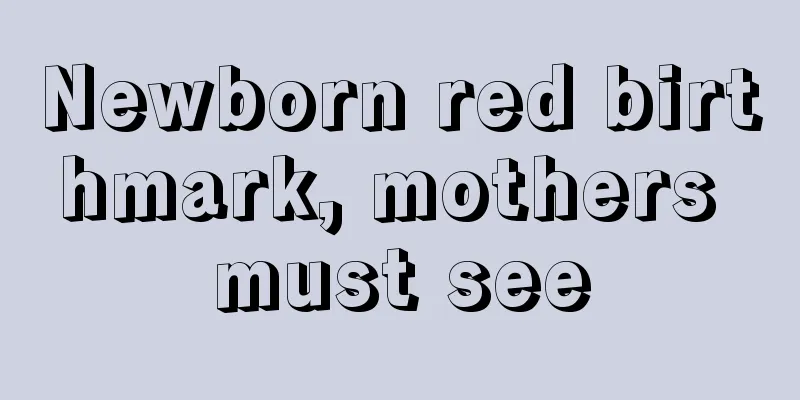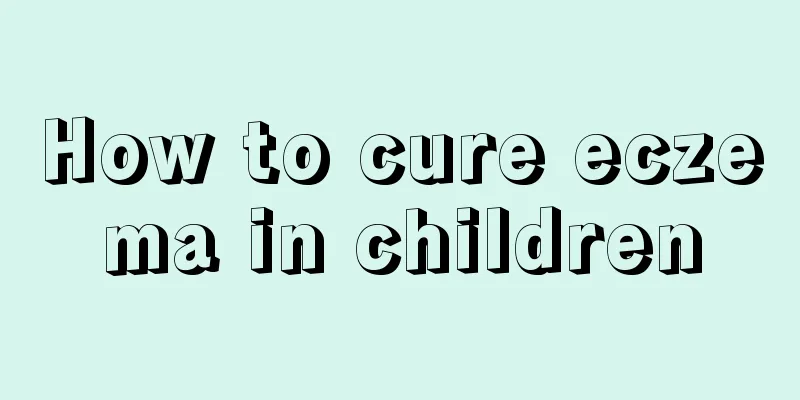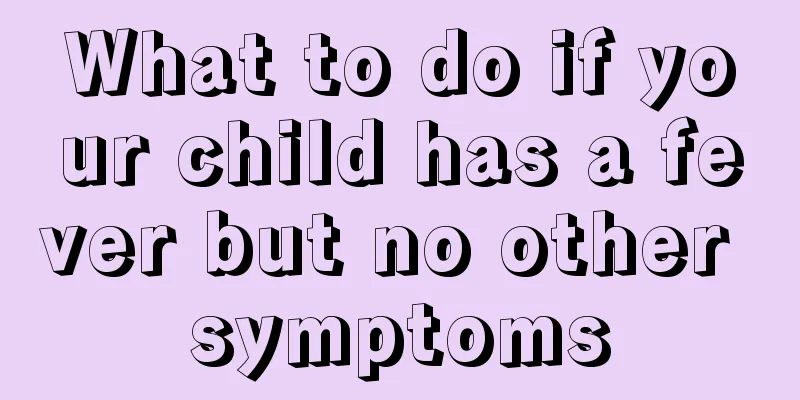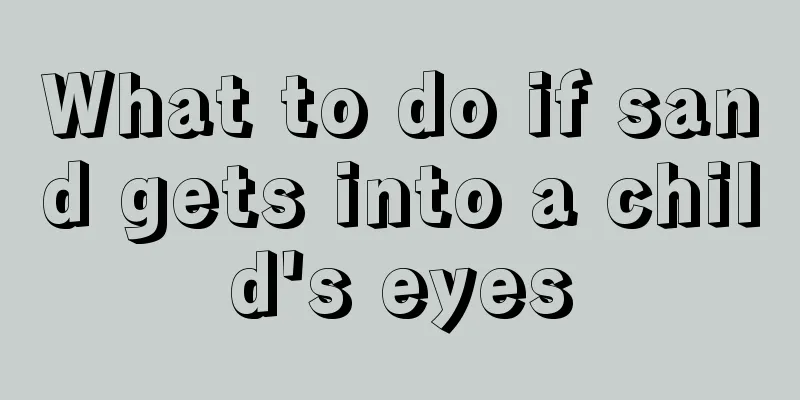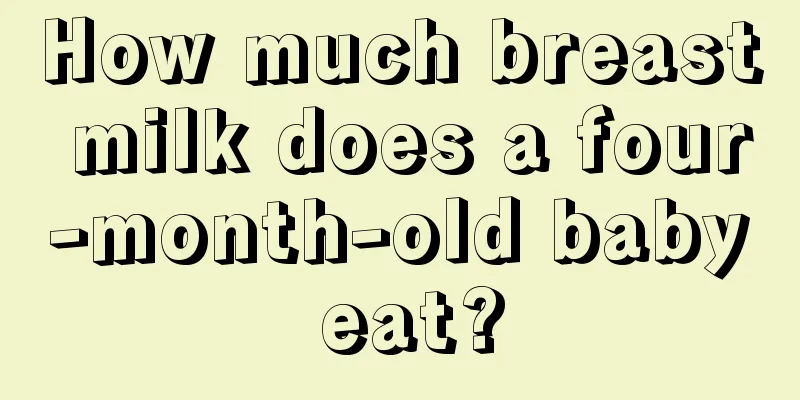What are the symptoms of hypoxia in children?
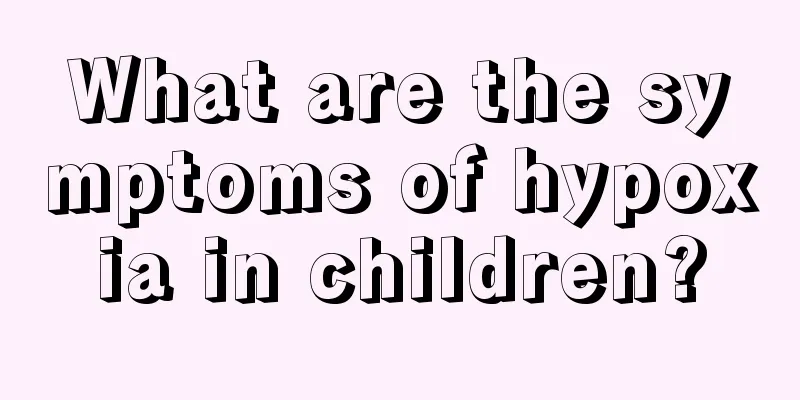
|
Nowadays, there are actually not as many children as before. Basically, one family has one child, so family members are very caring towards their children. However, there are always some children whose health makes their families very worried. Some children suffer from hypoxia, which is a relatively dangerous situation. So, what are the symptoms of hypoxia in children? Regarding the situation of children suffering from hypoxia, please see the following introduction. Neonatal hypoxic-ischemic encephalopathy refers to hypoxic-ischemic damage to the brain caused by asphyxia in the perinatal period (from 28 weeks of pregnancy to one week after delivery). A series of encephalopathy manifestations appear clinically. This disease not only seriously threatens the life of newborns, but is also one of the most common causes of disability in post-neonatal children. According to the different conditions, it is divided into mild, moderate and severe: (I) Mild: hyperarousal, irritable, excited and highly agitated (shaking, tremor), normal muscle tone, active hugging reflex, normal sucking reflex, steady breathing, no convulsions. The symptoms usually disappear gradually within 3 days and the prognosis is good. : Inhibited state, drowsiness or light coma, hypotonia, convulsions, respiratory arrest and weakened hugging and sucking reflexes in 50% of cases. In full-term infants, the decrease in muscle tone in the upper limbs is more severe than that in the lower limbs, suggesting that the lesion involves the parasagittal sinus area. If premature infants show that the lower limb muscle tone is more severe than the upper limb, it indicates that the lesion is periventricular leukomalacia. If symptoms persist for more than 7 to 10 days, there may be sequelae. (III) Severe: The child is in a coma, with extremely low and loose muscle tone, disappearance of hug reflex and tendon reflex, unequal pupils, poor light reaction, bulging anterior fontanelle, frequent convulsions, irregular or stopped breathing, and even respiratory failure. The mortality rate among children with severe disease is high, and survivors often have sequelae. What are the symptoms of hypoxia in children? The situation of children's hypoxia has been introduced to you quite comprehensively. If you encounter such a situation, you must provide the child with timely and effective treatment to prevent the child from suffering further harm, otherwise it may cause some sequelae. |
<<: Is excessive exercise good for children?
>>: What to do if your child has a picky eater
Recommend
How to solve the problem of children sleeping restlessly at night
When going to bed at night, everyone certainly ho...
What is the right age to practice Taekwondo?
Taekwondo is a sport introduced to China from Kor...
How to make autumn health soup for children
In autumn and winter, one of the issues that peop...
The dangers of cerebral palsy in children
We also call cerebral palsy in children cerebral ...
What should I do if my child’s face becomes red and itchy due to allergies?
Compared with adults, children have weaker resist...
When is the best time for children to drink milk?
Milk can be said to be something that we all have...
What to do if your child has a urinary tract infection
Urinary tract infection is a common disease in ch...
How to make baby tofu porridge
Baby tofu porridge is a very common baby food. Th...
Childhood mental illness
For children, because their resistance is relativ...
How many months is the earliest premature baby?
The smallest premature baby in my country weighed...
What's on the baby preparation checklist?
Before the newborn baby makes a sound, expectant ...
Pediatric development standard reference
The baby's growth and health are related to t...
Six month old baby with diarrhea
The baby's health is the most important thing...
How to treat jaundice in a 50-day-old baby
How to treat jaundice in a 50-day-old baby? If th...
What should I do if my child has a persistent high fever of 39 degrees?
If a child's high fever continues to reach ab...
